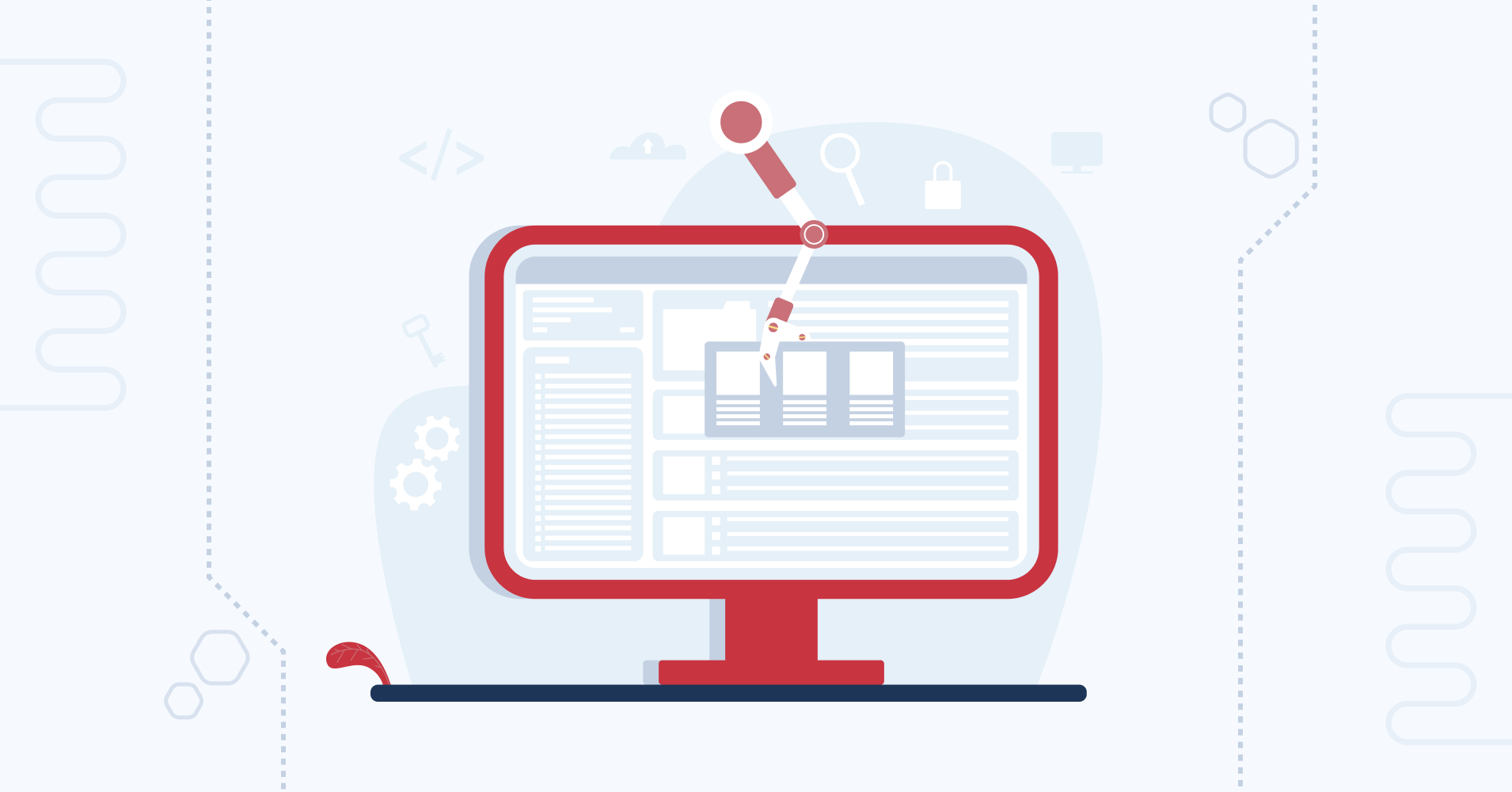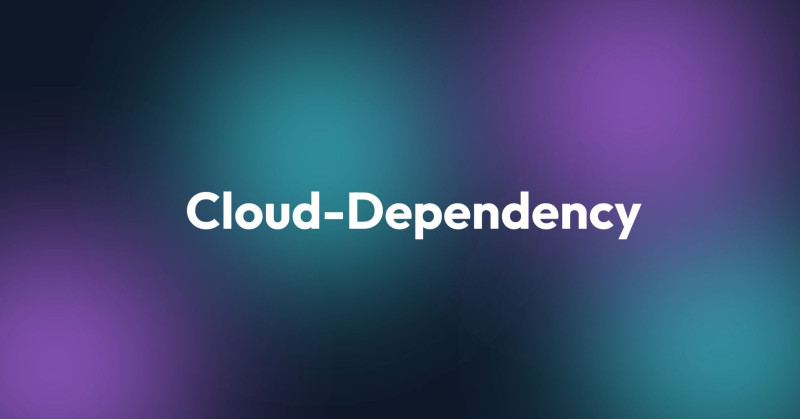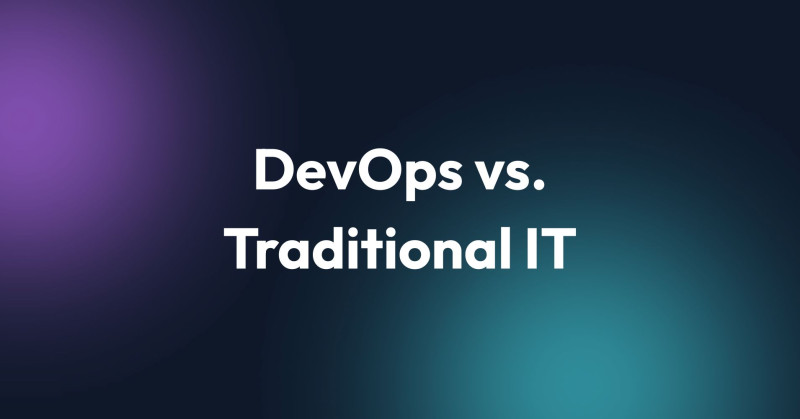In many cases, off-the-shelf software cannot be adapted to the specific nature of a given industry or company's business profile. If none of the available solutions meet your expectations, it is worth considering dedicated software. What is it and what benefits can it offer for companies?

What Is a Custom Software?
Let’s start with defining what is custom software development.
Custom software is created with a specific client, group of users or tasks in mind and responds to specific requirements. The opposite is a commercial off-the-shelf solution, available immediately, but its functionality is not tailored to specific requirements.
Examples of Types of Customized Software
-
Content management systems (CMS)
-
Customer relationship management systems (CRM)
-
Business process automation system.
-
Automatic invoicing.
-
E-commerce solutions.
-
Bug tracking software.
When to Develop Custom Software for Your Business?
As companies become more complex in their services or introduce innovations, they decide on custom solution when none of the options readily available on the market meet business requirements.
This software allows you to fully control every aspect of the process, operations, etc. If necessary, you can also add new functions and integrations, so the possibilities are virtually limitless.
Custom vs Off-the-shelf Software
Off-the-shelf software is sold commercially and is designed to fit the needs of a wide audience, so it is largely universal - hence its lower price and immediate availability.
However, universality will not work everywhere. It may be necessary to purchase two separate programs that will pose integration problems or fail to meet some of the requirements, which will affect the business.
Custom software is more expensive, but it is an investment that proves to be much more profitable. Not only is the program created with specific requirements in mind, but it can be freely developed in the future as the company grows and new needs arise.
With custom software, you can also count on greater support and maintenance assistance from the software house that made it.
The Benefits of Custom Software: When to Use Custom Software
Let's take a closer look at the advantages of custom software. What specific benefits can your business experience if you opt for this solution? How will the investment pay off?

Full Customization for Business Needs
Each element of the application is precisely tailored to individual business needs, allowing you to achieve maximum efficiency and operational optimization - this is the main advantage of custom software.
Dedicated functionalities
By fully tailoring custom software to a specific business, a company can avoid redundant functions that are not relevant to its operations, resulting in a more intuitive interface and reduced learning time for operation.
It also ensures that the custom software can integrate effectively with the company's existing systems, eliminating incompatibility issues and facilitating the smooth exchange of data between different areas of the organization.
Increased productivity
Another unquestionable advantage is increased productivity within the team. Faster and easier execution of daily duties means greater employee satisfaction and profit for the employer.
Automation of repetitive tasks
Many of the daily tasks can be successfully automated. Creating a system that supports faster performance of repetitive tasks means faster work and fewer errors.
Improved process and workflow
Custom software is designed to integrate perfectly with existing organizational structures, allowing information to flow seamlessly between different stages of the business process. This eliminates unnecessary delays, reduces the risk of errors, and minimizes wasted time, resulting in increased employee productivity.
Flexibility and scalability
As we already know, creating software from scratch offers flexibility. How does this affect the company?
Easier introduction of new functionalities
Adding new functionality in custom software is relatively easy. You don't have to worry about whether the software you purchased will still be useful in a few years.
Adapting to changing needs
The scale of your company's operations is increasing? Dedicated software can handle it without a problem. It adapts to your needs, not the other way around.
Competitive advantage
Competitive advantage is a key element in the success of any business. Efficient organization of processes can help your company leave the competition far behind.
Leveraging innovation
An innovative approach includes the ability to adapt to changing customer needs and dynamic market conditions. Can you offer your customers something they can't find anywhere else, with the only obstacle being the creation of a technology-enabled environment? You will find the solution to the problem in custom software.
Security
Ensuring data security is a priority. It builds trust with customers and partners. Failure to do so can even contribute to tarnishing the company's reputation, and the consequences can put customers in big trouble.
Integrations
Integrations include the harmonious linking of different systems, processes, and data, which enables the smooth exchange of information and increases operational efficiency. Good integrations avoid data isolation, eliminate unnecessary double entry of information, and improve cooperation between different departments of an organization.
How to Choose a Custom Software Development Company?
Choosing the right bespoke software development company is a critical decision that can significantly impact the success of your project. Here are some key factors to consider when selecting a custom software development team:
-
Define Your Requirements: Clearly define your project requirements, objectives, and expectations. This will help you communicate effectively with potential development partners.
-
Experience and Expertise: Look for a company with relevant experience in developing software similar to your project. Check their portfolio and case studies to assess their expertise in your industry and technology stack.
-
Client Reviews and References: Check client reviews and testimonials to get insights into the company's reputation and the experiences of previous clients. Request references and contact their past clients to gather more information.
-
Communication and Transparency: Effective communication is crucial for the success of any project. Ensure that the chosen software house has transparent communication channels and keeps you informed about the progress, challenges, and milestones.
-
Technical Skills: Assess the technical skills of the development team. Ensure they have expertise in the programming languages, frameworks, and technologies required for your project.
-
Quality Assurance: Inquire about the company's quality assurance processes and testing methodologies. A robust testing process ensures the reliability and security of your software.
-
Cost and Budget: While cost is a factor, it should not be the sole determining factor. Compare quotes from different companies, but also consider the overall value, expertise, and quality of services offered.
-
Location and Time Zone: Consider the location and time zone of the development team. Ensure that there is a reasonable overlap in working hours for effective communication and collaboration.
By thoroughly evaluating these factors and conducting due diligence, you can make an informed decision when choosing a custom software development company that aligns with your project requirements and business goals.
More tips can be found in our article about choosing the perfect technology contractor.
How Much Does Custom Software Development Cost?
The important question you may ask now is “How much does custom software cost”? The cost of custom software development can vary widely depending on several factors. These factors include the complexity of the project, the features and functionalities required, the technology stack used, the level of customization, the development team's location and expertise, and the project's timeline.
Here are some key factors that can influence the cost of custom software development:
1. Project Scope and Complexity: A simple application with basic features will cost less than a complex system with advanced functionalities. The number of user roles, integration requirements, and the overall complexity of the software impact costs.
2. Technology Stack: The choice of programming languages, frameworks, and third-party tools can affect development costs.
3. Design and User Experience: A well-designed and user-friendly interface may require more time and effort, impacting costs.
4. Integration Requirements: If the software needs to integrate with other systems or services, the complexity of integration can impact costs.
5. Testing and Quality Assurance: Thorough testing to ensure the software's reliability and security may increase development costs.
6. Project Timeline: An accelerated timeline may require more resources and increase costs.
7. Development Team Location: The hourly rates of development teams vary based on their location. Offshore teams may offer lower rates than onshore teams, but communication challenges may arise.
8. Post-Launch Support: Ongoing maintenance, updates, and support after the software is launched may incur additional costs.
To get an accurate estimate, it's essential to outline your project requirements and engage with software development firms or freelancers for detailed proposals. They can provide a more precise cost estimate based on your specific needs and project details.
Keep in mind that custom software development is an investment, and finding the right balance between cost and quality is crucial for a successful project.
Why Should You Choose Custom Software Development Services?
Dedicated software offers several benefits that will help optimize and grow your business. It's the best solution with long-term success, stability, and security in mind. What if your in-house team is unable to handle the creation of a dedicated system?
How to Build a Custom Software?
Meet Building Products—our process is proven and tested by customers from all corners of the world. It consists of a few simple steps, during which we provide you with the full support and expertise of our experts.
Primotly’s Guide to Custom Software Development Process
From the beginning of our company, our goal was to help our partners to achieve the best results.

The Initial Workshop
To begin, we want to know exactly what your current situation, expectations, and industry are. We’ll talk about expectations, budget, functionalities, and deadlines. Based on this interview, we develop an action plan that will lead you along the optimal path to success.
After the initial workshop, we will get back to you with the documentation. It will include conclusions of the topic discussed, and details about the actual workshop: how many hours it will take, who will participate, and how much it will cost.
Remember, we conduct the initial workshop for free. If you want to know more about what it looks like, see the article about our approach to developing software solutions.
The Actual Workshop
The actual workshop is the time when can talk about details, and make estimations, as well as first mockups and wireframes. Your feedback is more than welcome on every step of the process, but during the actual workshop, we want to work hand in hand to make sure both sides are on the same page.
Design and Development
Now it’s Primotly turn to design the home page and create a design system that aligns with your vision and needs. We’ll make sure that design is in line with the latest standards and your expectations. When you will give us the green light—we’ll proceed with making all the required designs.
During the development phase, we will meet regularly, sharing the progress of the work. This will give you full insight into the progress of the project.
We will help you implement the software in your company and take care of support and future maintenance. Do you want to know the details about each step of collaboration with Primotly? We prepared a full guide about our process from the design to the finished product.
Primotly – the missing element to your customized software
At Primotly, we put partnership first. From the first meeting, we want to get to know your business well to select technologies and solutions that will be best for the development of your company. Dedicated software will give your business a boost, supporting you in everyday tasks. Custom software solutions require a dedicated team. We are ready to make tailored solutions to make sure that the new software helps your organization to scale.
Do you have additional questions? Would you like to talk about your idea? Get in touch with us and let's build custom software together!





















